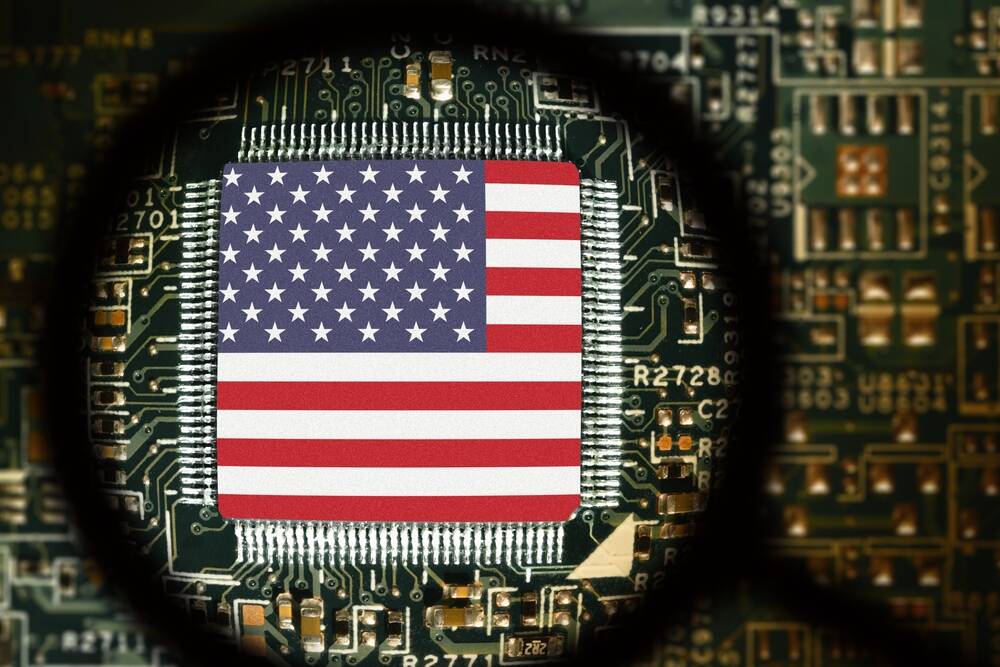World War Fee Uncle Sam is kicking off a probe into the national security risks associated with America relying on imported foreign-made semiconductors. The move is a likely precursor to sticking steep tariffs on imported chips: The Trump administration has been applying similar levies to foreign goods ostensibly to, among other things, encourage more manufacturing on American soil. Public notice of the investigation will be published in Wednesday's edition of the Federal Register.
In a pre-publication copy of the notice available for review now, the US Department of Commerce explained it was seeking public comment on the matter as it seeks to "determine the effects on national security of imports of semiconductors, semiconductor manufacturing equipment (SME) and their derivative products." Per the notice, derivative products include things "that contain semiconductors," so if any tariffs do result from the investigation, expect electronics that include foreign-made chips (yes, iPhones ) to be affected, too. Unpredictability is undermining long-term investment and growth The Trump regime lifted tariffs on a number of imports – including computer equipment – last week, but with the added caveat that it fully intended to bring the tariffs back within a couple of months.

The President also warned tariffs were coming for chips specifically. This investigation seems to be the beginning of that effort, with the White House using a familiar measure to legitimize potential tariffs on the semiconductor sector. Like it did with steel, aluminum and automotive tariffs, the federal government is using the Section 232 of the Trade Expansion Act of 1962, which allows the President to enact tariffs for national security reasons.
The shift from using a declaration of national emergency to the more specific concerns about national security "reveals the administration's desire for a more durable justification," Consumer Technology Association CEO Gary Shapiro said of the news. "But claiming that downstream consumer tech products qualify as 'semiconductors' is a stretch." As for particularities, the notice said it's looking for public feedback not only on the security risks of importing semiconductors, but the country's potential to handle domestic production of affected chips as well, which ties in with Trump's previous justification of tariffs as a way to bulk up, or in a lot of cases jumpstart, US manufacturing.
US semiconductor manufacturing has seen a boost in recent years with the Biden-era CHIPS Act and commitments from multinationals like TSMC and Samsung to build chip plants in the US. As we've noted before, however, those plants can take years to come online, and both super-corps have been hesitant to bring leading-edge chip manufacturing to the US. In other words – and forgive us for sounding a bit like a broken record – buyers will feel the pinch if the Trump administration uses this investigation to enact semiconductor tariffs; the extra levies will be passed onto them.
Amazon expects this to happen. Meanwhile, the randomness of the tariff strategy thus far will forestall any big US reindustrialization, according to Shapiro. "Unpredictability is undermining long-term investment and growth," Shapiro said.
"More, high production costs and a limited skilled workforce make domestic manufacturing of consumer tech challenging," the CTA CEO added. "To support US innovation and competitiveness, we need a smarter, targeted trade strategy where we team up with allies to compete with China." The public comment period for the investigation will last for 21 days from publication of the order, which is scheduled for Wednesday.
Section 232 investigations are designed to take no longer than 270 days. The Trump administration also released an advance copy of another Section 232 investigation that could preempt tariffs yesterday targeting the pharmaceutical industry. The Commerce Department declined to comment on this story.
®.
Technology

Team Trump readies national security card to justify taxing Americans for foreign chips

There's a new tariff in town World War Fee Uncle Sam is kicking off a probe into the national security risks associated with America relying on imported foreign-made semiconductors....















